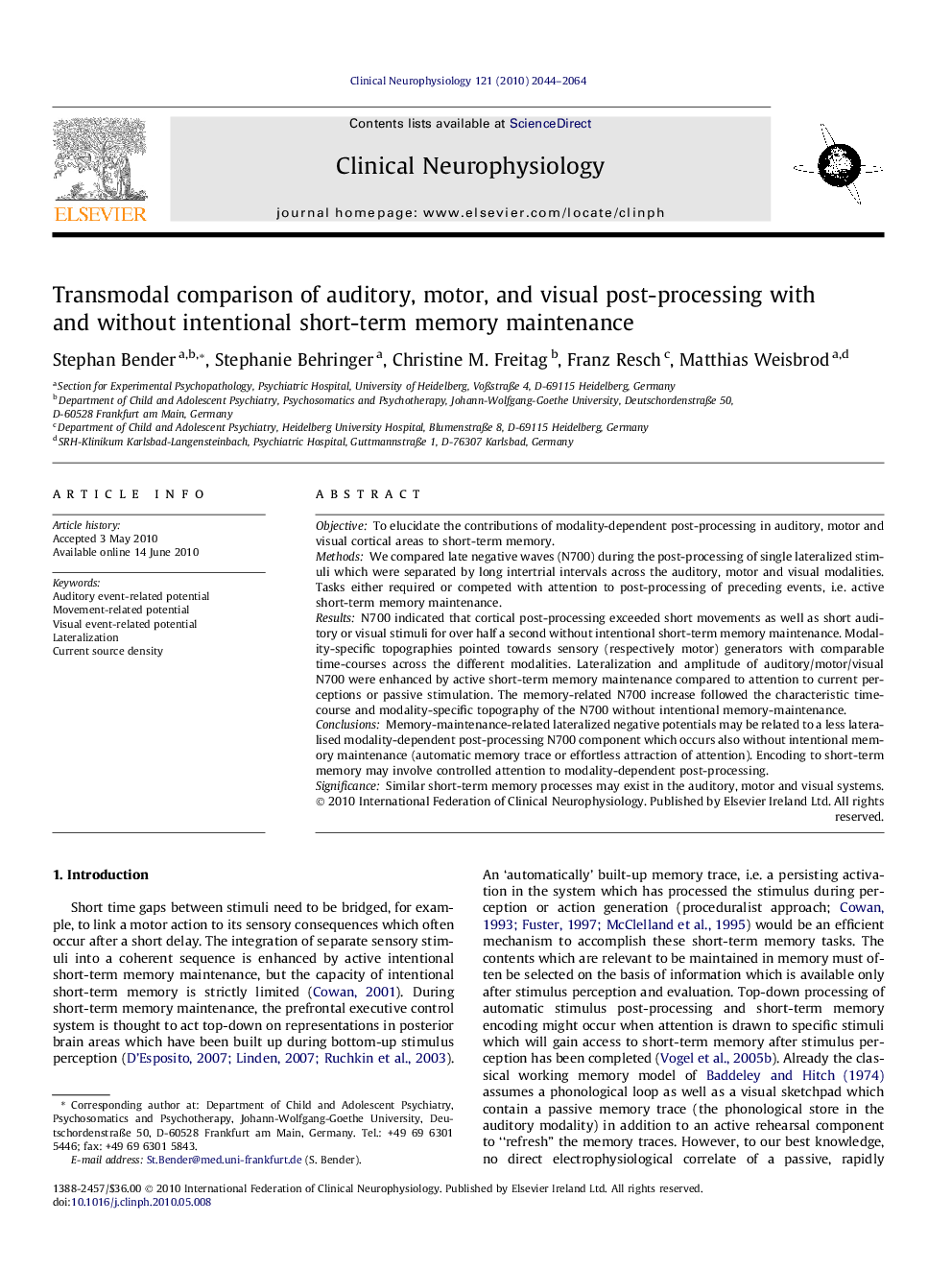| Article ID | Journal | Published Year | Pages | File Type |
|---|---|---|---|---|
| 3044430 | Clinical Neurophysiology | 2010 | 21 Pages |
ObjectiveTo elucidate the contributions of modality-dependent post-processing in auditory, motor and visual cortical areas to short-term memory.MethodsWe compared late negative waves (N700) during the post-processing of single lateralized stimuli which were separated by long intertrial intervals across the auditory, motor and visual modalities. Tasks either required or competed with attention to post-processing of preceding events, i.e. active short-term memory maintenance.ResultsN700 indicated that cortical post-processing exceeded short movements as well as short auditory or visual stimuli for over half a second without intentional short-term memory maintenance. Modality-specific topographies pointed towards sensory (respectively motor) generators with comparable time-courses across the different modalities. Lateralization and amplitude of auditory/motor/visual N700 were enhanced by active short-term memory maintenance compared to attention to current perceptions or passive stimulation. The memory-related N700 increase followed the characteristic time-course and modality-specific topography of the N700 without intentional memory-maintenance.ConclusionsMemory-maintenance-related lateralized negative potentials may be related to a less lateralised modality-dependent post-processing N700 component which occurs also without intentional memory maintenance (automatic memory trace or effortless attraction of attention). Encoding to short-term memory may involve controlled attention to modality-dependent post-processing.SignificanceSimilar short-term memory processes may exist in the auditory, motor and visual systems.
